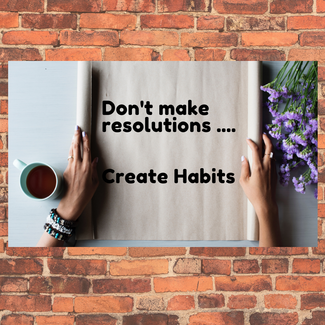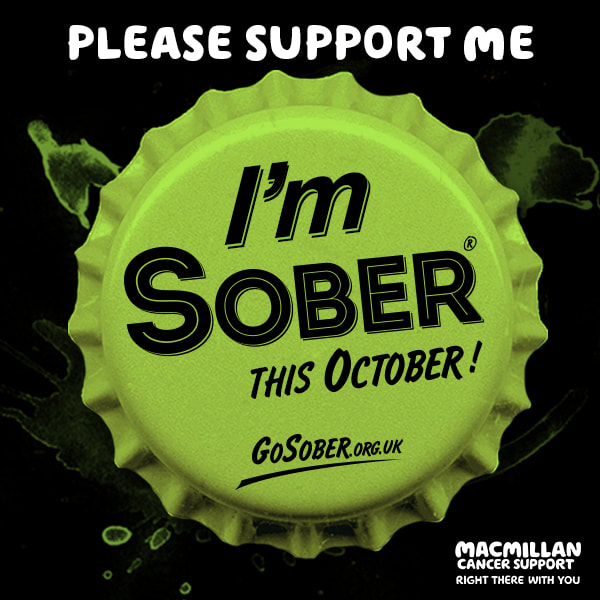 Pregnancy is a time of massive physical, hormonal and psychological change as you and your baby develop and prepare for birth. It's a time that sees a move towards changing relationships as couples adjust to becoming parents or growing their family. The focus during pregnancy is on the pregnant couple who are given support, love and care by friends and family. Mums go to yoga classes, pay attention to nutrition and generally do anything they can to improve their health and wellbeing. Then the baby is born and everything changes: focus is diverted to the baby - naturally so. But whether you are first time parents or already have children, the demands of a baby can be exhausting and overwhelming. As a mum your body may take a while to return to normal. Labour can be traumatic, hormones are out of balance - from birth to breast milk flow, oestrogen and progesterone levels plummet to the levels of a menopausal women. It can take months for hormones to normalise, causing mood swings and extreme highs and lows. As a dad you have to support as best you can, and with mum and baby so connected, you may feel a bit of an outsider. After birth, the brain changes - in both parents - activity increases in the regions of the brain that control empathy, social interaction and anxiety. So the stress response is heightened in new parents which means that the smallest thing can cause stress in the body. And naturally, the focus is on the baby - so the health and wellbeing of the parents can take a back seat. But parents need and deserve care in those first few months after the birth. And baby deserves healthy relaxed parents. 4th Trimester Reflexology is a way of giving self-care and recovery post-birth. Home visits are available and because Reflexology works on the feet, it's possible to feed during a treatment. Hold your baby while receiving Reflexology and see that relaxation transmit to your baby. For the best possible outcome, book a double appointment so that Mum and Dad can benefit. Thinking about something different for baby showers - 4th Trimester Reflexology vouchers are available: contact Doris on 07724 197627.
0 Comments
Isn't it strange how things just happen? I've set as part of my goals for this year the twin aspects of clarity and focus (because I get so easily distracted - thank you facebook!). And co-incidentally, as I was scouring google I came across Donna Eden's 31 day eye challenge! Perhaps the Universe is giving me a signal.
I do spend a lot of time on the computer, I can feel that my eyes are not as flexible as they used to be and as I've been wearing glasses for the past 30 years, I thought this challenge might be good and it certainly wouldn't do any harm. So on 1st January I started the challenge. (Almost) each day of the January I went onto YouTube and spend between 4 and 10 minutes doing the challenge along with some of Donna Eden's students. And I really do feel it's made a positive difference! Now I can't say that my eyesight has improved (I'll need to wait for my next eye test to know if that's the case), but my eyes do feel more relaxed and lighter and brighter. I would recommend this routine to anyone who uses a computer or phone for any length of time (which is probably 95% of the people reading this). And I've enjoyed doing it so much that I decided to record a session to share with you. It's easy to do; the sequence is easy to remember; and it can be done in about 4 minutes flat. So, have a watch of my video and next time you're about to jump into the car, or at some point during your working day, take 4 minutes out to do your eye exercises. I find that the best results happen when you do the eye exercises regularly - it's like any exrcise really - so add it to your daily routine for the best results. They say the eyes are the window to the soul and my Neuro-Linguistic Programming training suggests that the position of your eyes indicates which part of the brain you're accessing, so the eye exercises might also help to clear negative thoughts and feelings - if you keep it up (as do the Emotional Detox sessions that I offer). Here's the link if you want to have a go: youtu.be/Y_MdeeC0RNA Comment below if you've tried it and let me know how you got on.  Have you given thought to what the New Year might bring for you? Are you turning your thoughts to a healthier, wealthier, happier version of yourself? Are you trying to temper those unrealistic expectations New Year resolutions generally don't work because they are largely a wish list of WHAT you want, without any great detail of WHY, HOW or FOR WHOM you want it. And without asking and answering those other questions, you're unlikely to have the tenacity to keep going when the going gets tough. If you're not really clear on why you want something, and if that WHY is not really compelling TO YOU then you're likely to find the momentum drops off really quickly. Wanting something because someone else values it is not a great motivator, but if you really, really want it, that motivation is likely to take you to your desired end point. And if the consequence of not getting your desired outcome is negative, then you'll be even more motivated. Knowing why you're sacrificing to get your outcome, will help you though the bad times. Many resolutions begin with a plan, but if the plan is too tough and the sacrifice too great is will be very difficult to sustain. Will power will only take you so far. Much better to take the long view. If you know how you will achieve your plan, then pick one thing and do it consistently until that action becomes a habit. And give your habit time to bed in - it takes about 3 months to really establish a habit. Pick one small habit every month to establish into your routine and by the end of the year you will have stacked a dozen new habits that have the potential to transform your life. The reason why habit stacking works so well is that it becomes effortless once the habit is established. The habit becomes part of your routine: you don't need to think about, you just do it. So, for example, you'd like to get healthier - you're sick and tired of being sick and tired. You want it for YOU - you really would like to feel better and have more energy. The consequence of not having it is that you will continue to feel sluggish, sleep poorly and not enjoy life as you would like to - and that would be bad because you're sick and tired of feeling sick and tired. You decide you need to change it, but HOW? You want to exercise more, eat more healthily, drink more water, and get a better quality sleep. So far it's all fairly non-specific and nothing that falls into a routine. So how can you transfer these into habits? What about, dropping the car off 1 mile from work, so that you have to walk to and from work to the car, increasing your exercise by 2 miles a day? Or start the day with a glass of hot water and swap your evening drink with a glass of water or a herb tea? Or batch cook a pot of soup one day a week, so that you can swap the Greggs baguette for some healthy home make soup? Or book a regular reflexology treatment to help you de-stress, detox and get a better sleep? Beginning to get the picture? Imagine how your life (and health) would change if you walked 2 miles a day; drank 2 glasses of water or herb tea instead of regular tea/coffee/alcohol; swapped a bowl of soup for your lunchtime bagette; and booked in regular treatments to help you de-stress. And you're only at April! Imagine what habits you could introduce in the rest of the year to transform your life! Give it a try and let me know how you get on ... I'm going to cheat this month and share some content, rather than create it myself. After all, why reinvent the wheel. I've just come across this video from Hethir Rodriguez which I thought was worth sharing, so I hope you find it useful.
https://www.youtube.com/watch?v=XJw9P4-EPKM&feature=youtu.be I run a Fertile Mind & Body Programme which consists of an initial consultation to gather information and formulate a plan of action, followed by 12 weekly reproductive reflexology sessions plus 12 weekly Baby Making Mindset sessions. The normal price for this is £1000, but I'm offering the first 3 participants a 50% discount - how's that for a Black Friday offer! My blog this month is straight from the Fertility Network UK website highlighting Fertility Week, so if you've been affected by fertility issues, read on:
"BBC Radio5 Live Breakfast Fertility Day, Tuesday 29th October 6-9am BBC Radio 5 Live will be talking candidly about all aspects of fertility and creating families in a network-wide Fertility Day on Tuesday 29 October. 5 Live Breakfast will focus on positive solutions and finding support for anyone facing fertility challenges, after Wake Up To Money has looked into the (big) business of commercial fertility treatment. Throughout the day 5 Live will be looking at fertility in BAME communities as well as embryo adoption and male infertility. There will be an exclusive interview with Sally Cheshire who is head of the UK’s fertility regulator the HFEA. Celebrities will tell their own stories, with Izzy Judd sharing how she and husband (ex Mcfly singer and former Strictly winner) Harry Judd underwent IVF treatment to have their family. The Emma Barnett Show will link up with BBC Radio 2’s The Jeremy Vine Show when they’ll ask why fertility is such a difficult subject to talk about. 5 Live’s award-winning Mum Takeover and a Sex Takeover in 2018 were big hits with the station’s audiences, featuring a combination of fearless digital features and full and frank on air chat. 5 Live’s special fertility day is part of Fertility Week – a partnership between BBC Radio 2 and BBC Radio 5 Live. Content will be online at www.bbc.co.uk/fertilityweek and BBC Sounds will also feature a highlights package from both networks. Monday 28th October #MentalMatters Infertility is a disease that is not only about your physical health, but one that can affect your mental health too. It is so important to look after and be kind to yourself. Which is why on our #MentalMatters day, the kick-starter of National Fertility Awareness Week, we will share tips from mental health experts, as well as testimonials from real people within our community. This day is not just about raising awareness about fertility and mental health but providing our network with solutions to help you navigate through this chapter in your life. Read the results of our Fertility Network UK Survey on the Impact of Fertility Problems. Tuesday 29 October #FertilityInTheWorkplace Most people going through fertility treatment are of working age. It’s important to both know your rights as an employee, and how to provide a supportive work environment as an employer. For our #FertilityInTheWorkplace day we will share research findings in collaboration with Middlesex University,Experiences and psychological distress of fertility treatment and employment.* The key to #FertilityInTheWorkplace really is flexibility and understanding. Don’t forget to check our social media on this day, where we show how proposing a supportive workplace can be made into a reality and make a real difference to employees going through fertility treatment. Wednesday 30th October #MenMatter Men are half of the fertility equation but may find it harder to express their feelings. Unfortunately, there is a severe lack of promotion of male voices in this community. To raise awareness of this, Fertility Network UK will spotlight he male voice and share testimonials from men facing infertility. Fertility Network will also share an all-important documentary, The Easy Bit, which focuses on the male experience. Thursday 31st October #FertilityEducation 71% of young people are not aware of lifestyle factors that could affect their fertility. We share results from our own Fertility Education project #FutureFertility. as well as Cardiff’s University’s Guide To Fertility.** It is essential to provide targeted information to a diverse range of age groups. Friday 1st – Sunday 3rd November #TheFertilityShow Fertility Week culminates in The Fertility Show at Olympia, London – the biggest and best-attended fertility show in the world. Fertility Network is proud to be a partner of the show. Join us there https://www.fertilityshow.co.uk/london Saturday 2nd November – #WorldFertilityDay Hosted by IVF Babble, World Fertility Day is a day to share your stories, be empowered with knowledge and learn from leading global experts. Click here to find out more.  orWell we’re officially in Autumn and “Go sober in October” is just around the corner. A reflexology treatment can provide a mild “detox” effect, but the best detox is not to introduce toxins – such as alcohol, with its high sugar content - into the body in the first place. Even moderate drinkers can benefit from some time away from alcohol and more focus on water and rehydration. You can do your bit for detoxing by joining the Go Sober campaign and if you want to know more, here’s the link https://www.gosober.org.uk/ Does a month with no alcohol sounds too big a challenge for you? If the answer is yes, that may be the very reason to give it a try! I’ve been on the Go Sober website and there’s some really useful information, for example, Chloe Mcleod, a professional sports dietitian and nutrition consultant has written on the benefits of one month off alcohol for your body: “1 Improvements to mental health Alcohol may seem like a mood elevator when you’re dancing and having a great time with your friends, but it is actually a depressant that can have serious negative effects on your overall mental health. Low moods can be aggravated, and low energy levels make situations feel worse. Taking some time off alcohol allows your brain to level out and you’ll be able to think with more clarity, dealing with any mental health issues in a much more positive way. 2 Improved hydration Alcohol is a diuretic, meaning it makes your body dismiss fluids more frequently. An easily identifiable hangover symptom that can come up is dehydration. People can suffer from dry skin which has less vibrancy, and your lips can crack easily. Low hydration levels can also affect your concentration and energy, which can have a substantial impact on how efficient you are at work, during your gym sessions or classes. When you stop heavy drinking your skin begins to regain its plumpness, fine lines may soften and your face will reclaim its natural glow, plus, you’ll feel much more alert. 3 Healthier liver Drinking a beer, wine or liquor is bad for the liver. After all, the human body isn’t built to process alcohol. When someone consumes large amounts of booze, even just a few times, their liver must work extra hard to process it all. Over time, the liver gets exhausted. Your liver is constantly working to regenerate itself. It produces new cells with the intention of fixing any problems that pop up. It’s one of the human body’s most important organs, after all, so it’s crucial that it stays in good shape. When you give up alcohol, your liver will start to flush out all of the leftover byproducts that were produced over time and within a few months you will feel the benefits after cutting out alcohol. 4 Improved weight loss This is no surprise to anyone I’m sure, but all those extra calories in a delicious red wine with dinner tends to add up. Over time, a couple of wines each night can cause your weight to creep up until you’re suddenly struggling to get those jeans on. This is because most alcohols have more calories per gram than protein and carbohydrates; only fat has more calories per gram. When cutting out alcohol, your overall calorie intake will then decrease (as long as you don’t replace alcohol with another high-calorie substitute). Once you give up alcohol you will start to see your waistline shrinking and can easily drop a dress size or belt notch by the end of the month. 5 Bigger bank account The benefits of alcohol detox aren’t just physical, it can also have a financial benefit as well. As everyone knows when you’re constantly consuming alcohol, the cost of it can add up over time. When on your own, a few beers or a glass of wine is only a small investment, but, when you drink daily, or even weekly, the cost can add up. When you stop drinking you will have some extra cash in your bank account that could be used for other necessities.” Not sure you’re up to the challenge? Here’s some tips from Juliet Hodges, Bupa UK’s behaviour change advisor: “Believe in yourself You might be feeling apprehensive about a whole month without alcohol and wondering if you have the willpower to last a full 31 days. Research shows that yes, you do – as long as you believe you do. People who believe that willpower is unlimited tend to be better at dealing with tasks that require self-control, and also tend to be happier. Tell yourself that you can do it, and it’s more likely that you will! Get your friends on board Our friends and family are vital to our success with this kind of thing , – they can either be your biggest supporters, or biggest liability if they’re determined to get you to drink. Making sure your friends are on side is really important, and better yet see if some can take on the challenge with you. If nothing else, let them know you’re giving up alcohol will make you less likely to quit, just to avoid the embarrassment of doing so! Try urge-surfing One thing you can try is urge surfing, a mindfulness technique which has been used to help people with addictions . When you feel the urge to drink, you’re encouraged to pay attention to it without trying to change it or get rid of it. We know that when you try not to think about something, it often makes the compulsion to think about it much stronger. So instead of trying to push away the urge, really think about it: what the sensations are that come with it, what you’re thinking about, and why. The point is that urges pass, whether you give into them or not. If you can confront the uncomfortable sensation, accept it and handle it, you’re much more likely to be able to get through it without giving in. Change your environment Studies have shown that people who have the most willpower actually use it the least. In other words, the way they shape their surroundings means they’re less likely to come into contact with temptation. This month is a good opportunity to ‘soberlise’ and try activities that don’t involve alcohol. Have a plan for alternatives Most of us have a favourite tipple that we’ll automatically choose when we find ourselves at a bar, whether that’s a pint of Guinness or a gin and tonic. Have you thought about what your non-alcoholic drink will be for the month? Having a plan in place for what you’ll order if you find yourself at the bar will help you to avoid falling into old habits. Break up the month into smaller chunks Small goals feel easier and more achievable, so break up your big overarching goal of 31 days in your mind. Think about individual days or specific events that you need to get through, and reward yourself for doing it. Did you make it through a party without having a drink? Brilliant, that deserves a massage or a shopping trip. Thinking about the challenge in terms of a few days or a week at a time will make it feel much easier, as will celebrating those small wins (without alcohol of course!). Have self-compassion If you’re used to drinking a lot of alcohol and your social life is geared towards it, this challenge will be really difficult. It’s important to remember that you’re only human, and to treat yourself with kindness even when you’re struggling. Don’t be afraid to let yourself have other treats instead of alcohol, reward yourself with other activities you enjoy so you don’t feel too deprived. Beware the ‘what the hell’ effect One thing that has been well-documented is the ‘what the hell’ effect, where people slip up once and think, “What the hell!” and break their resolution. For example, someone on a diet might have some birthday cake in the office – then order a takeaway when they get home, as their diet is already ‘broken’. If you do slip up and have a drink, it’s not an excuse to go mad – get back on the wagon as soon as you can, and don’t be too hard on yourself. Focus on what you’ve already achieved Some studies have found that people trying to achieve a goal feel more motivated when they think about the smallest area of progress. In other words, when you’ve only just started, you’ll be more motivated by thinking about the few days you’ve gone without a drink than the few weeks left to go. However, when people are nearly at the end, to maintain your motivation, focus on the small number of days you have left. Remember why you’re doing it Whatever your reasons for going sober, they’ll be a powerful motivator when things get tough. Whether you’re doing it to lose weight, if you are supporting a friend who is going through a difficult time, or you’re just doing it to help a good cause, remembering why you signed up in the first place will help you stay on track.” And if you’re into your cocktails, the Go Sober website has some delicious mocktails for you to try … https://www.gosober.org.uk/blogs/wellbeing/mocktails If you want to accelerate the benefits of your Go Sober in October efforts, a reflexology treatment will help your body rebalance and support the natural detox process. A special Detox Reflexology treatment focuses on the elimination system to support the body’s natural ability to eliminate waste and toxins from the body. Special Offer: Book 2 Detox Reflexology sessions (1 hour each) in October for only £59.50 (that’s a whopping 15% discount). To make your booking go to the Booking Page or contact Doris on 07724 197627.  If you have private health insurance, either as an individual or as an employee benefit, check out the small print! Many companies offer cover for reflexology treatments, so make sure you're not missing out on this valuable health and wellbeing benefit. Most Health Insurance companies don't need a GP referral (though check out your individual plan to make sure), but they usually require that your reflexology practitioner is a registered member of a recognised professional body. I think I'm right in saying that The Association of Reflexologists (of which I am a member) is the largest professional association in the UK. Usually insurance companies require written confirmation from the practitioner of the price and number of treatments - a letter on headed paper usually suffices. So, if you have access to private health insurance, check out your policy. You may be entitled to a large percentage off your treatments for a number of reasons including support for:
I've just been looking at a blog on the Health Shield website. They include Reflexology in their wellbeing package and this is what they have to say about Reflexology: "Aside from relaxation and stress management, reflexology can have a number of other benefits too, including:
 PolyCystic Ovarian Syndrome (PCOS) affects 1 in 10 women and up to 70% of women are undiagnosed. As well as being the most common endocrine disorder which can affect women from puberty into post-menopause it is also the most common cause of female fertility issues. PCOS can present with a variety of symptoms including: hormonal changes or imbalances; fertility issues; difficulties managing weight; fatigue; digestive disturbances; insulin resistance; Type 2 diabetes; metabolic syndrome; skin issues; hirsutism; psychological issues and disturbed menstrual cycle. It is a genetic condition which can take anything from 1 to 17 years to be diagnosed. However, given the range and lack of specificity of possible symptoms and the fact that each individual may present with a different range and degree of symptoms, it's not surprising that it can be difficult to diagnose. A diagnosis should include an ultrasound scan, hormone tests and a discussion about individual symptoms. In PCOS the ovaries do not function properly and that leads to increased levels of testosterone. It can cause an irregular cycle creating fertility issues. Along with the increased testosterone comes an increase in insulin resistance which in turn leads to weight gain and increased production of oestrogen which only worsens the symptoms. Managing insulin levels is key to managing weight and managing weight is key to managing PCOS symptoms - something which is particularly difficult because the insulin resistance and fluctuating hormone levels create food cravings - especially for carbs and sweet things. However, the good news is that even a 5% reduction in weight can: decrease insulin levels; reduce testosterone levels; reduce hirsutism; reduce acne; improve the menstrual cycle and trigger ovulation. A specialist nutritionist can help or consider following insulin focused diets such as Low-GI diets, the Blood Sugar Diet - Dr Michael Mosley; 5:2 fasting - Dr Michael Mosley. Any eating regime which helps to stabilize glucose and insulin levels will help and make it easier to lose weight. Not everyone with PCOS has weight management issues, but following a healthy diet which stabilizes insulin levels is still important. Reproductive Reflexology can provide a targeted approach to supporting hormone balance alongside a healthy lifestyle (diet and exercise) for sufferers of PCOS, particularly for those who wish to conceive. The low progesterone levels that can be associated with PCOS may mean that maintaining a pregnancy can be difficult and Reproductive Reflexology has different protocols to support hormone levels at different points in the cycle. If you'd like to know more, CLICK HERE. |
|
